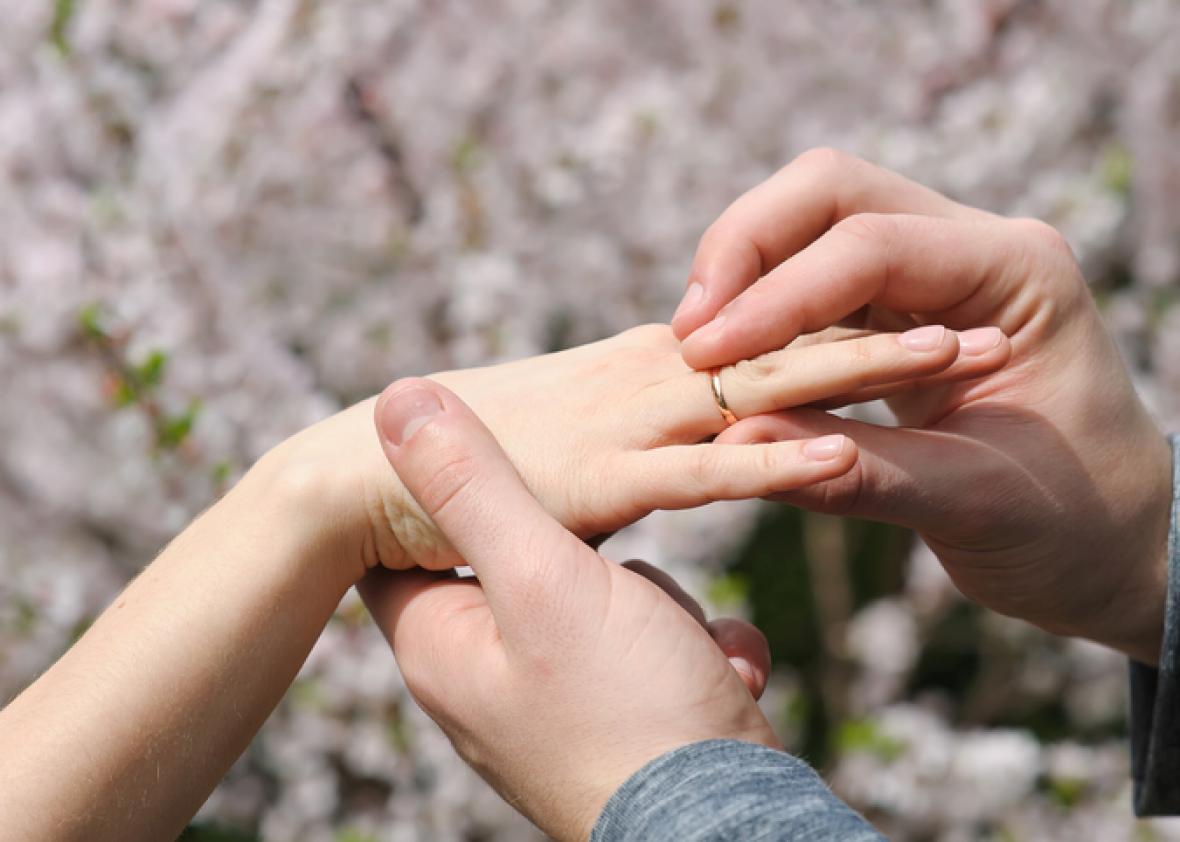On July 1, a new Virginia law went into effect, stirring U.S. conversation around an issue usually associated with developing nations. The law sets the minimum age of marriage at 18, with exceptions for 16- and 17-year-olds emancipated from their parents. Previously, Virginia parents had been marrying off children as young as 13. If a child was pregnant, her marriage was official under state law.
The piece of legislation was signed into law in March after being pushed forward by advocates who said Virginia’s support for child marriages gave abusers, human traffickers, and rapists legal cover for their crimes. Having sex with a child is considered rape, but if that child became pregnant and her parents got behind her marriage to her rapist, in Virginia, he wouldn’t have to answer for his crimes.
Virginia state senator Jill Holtzman Vogel, who introduced the bill along with state delegate Jennifer McClellan, told the Washington Post she became aware of the issue when she learned of a high-school girl in her district who was married with her parents’ consent to a man in his 50s. The man had been having sex with the girl, but when he began to fear prosecution, he convinced her parents to endorse the marriage. “Now they’re married, and there’s no crime,” Vogel said. “She dropped out of high school. Her life is ruined.” Vogel said the man had done this before with another teenager; they later divorced.
According to statistics from the Virginia Department of Health, almost 4,500 children under the age of 18 were married in the state between 2004 and 2013, and more than 200 of them were aged 15 or under. About 90 percent of them were girls, and about 90 percent were married to adults. Between 30 and 40 percent of those adults were aged 21 and over. The Tahirih Justice Center, a Virginia-based advocacy group for immigrant women and girls in the U.S. that drafted the Virginia legislation, pulled out some shocking numbers from the state’s child marriage record: From 2004 to 2013, 13 children under age 15 were married to people more than 20 years older than them; 25 15-year-old children were married to people over age 25, and 47 16-year-olds were married to people over age 30. In 2006, a girl under age 15 married a man in his 50s. This was legal.
“The youngest bride [between 2004 and 2013] was 13. A pregnant 13-year-old should have raised alarm bells, since sex with a 13-year-old is a crime,” McClellan wrote in a Richmond Times-Dispatch editorial. “She shouldn’t have been given a license to marry the man who assaulted her. Social services should have been called and an investigation initiated. But instead, she was relegated to being another invisible, forgotten, neglected child bride.”
In most states, people must be 18 years old to marry. But most states also set up loopholes for 16- and 17-year-olds with parental consent or judicial orders. Some states make exceptions for younger children who are pregnant or who’ve given birth to a child with their prospective spouse. Children can easily be forced into marriage with violence, threats of rescinding financial support, or the promise that siblings will be married off if they don’t agree to it. They have little recourse when their parents are the architects behind the marital union, as in the case of U.S. girls flown to other countries to marry a distant relative or family friend so he can get a visa.
A few state legislators outside Virginia are also trying to address lingering laws in their states that legitimize child marriage and allow abusers to marry their victims. A bill similar to Virginia’s petered out in the Maryland state legislature this session, but is likely to come up again. If a proposed bill passes in New York, the state would become the first to completely outlaw any marriage for people under the age of 18.
In spite of the horrifying stories of children forced into marital unions that put them at greater risk of abuse and stunted education, at least one Virginia legislator opposed the new law on account of hypothetical fetuses. According to the Washington Post, state delegate David A. LaRock thought the new law would encourage pregnant teenagers to have abortions rather than go to court for permission to marry the person with whom they’d had sex.
